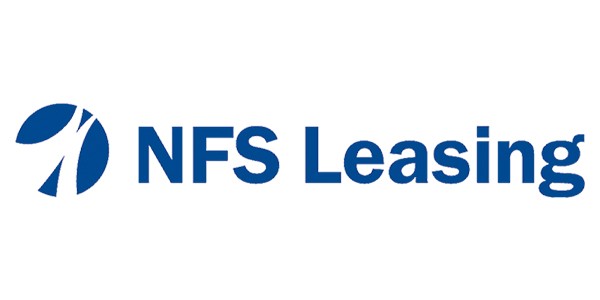[ad_1]
PRESS RELEASE
Published September 1, 2023
Transformation of Small Businesses through Vendor-Oriented Financing Solutions
Beverly, United States – September 1, 2023 / NFS Leasing, Inc. /
Vendor Financing and Vendor Equipment Finance, two terms often interchanged, are powerful tools that reshape the landscape of small business growth. These financing methods give businesses the capital to purchase essential equipment or services, allowing them to compete in an increasingly competitive market. For many small businesses, these financing options have become vital lifelines, driving business expansion and propelling economic growth.
Understanding Vendor Financing
Vendor Financing is a facilitative measure enacted by suppliers, where they extend a line of credit to their clients to purchase goods or services. This form of financing manifests itself in two primary formats:
- Debt Vendor Financing: This scenario is where the vendor lends money to the buyer, functioning as a loan form. The buyer then repays this loan over a specified period, often with an attached interest rate. This type of vendor financing is more common and is similar to traditional bank lending but without the often rigorous checks.
- Equity Vendor Financing: This is a unique form of vendor financing where the vendor opts for an equity position in the buyer’s business. In other words, instead of lending money, the vendor takes a share of the company in return for the goods or services.
Various vendors employ vendor financing, including manufacturers, software companies, and retailers. These vendors use funding to increase sales, reach new markets, and maintain client relationships.
How Vendor Financing is Revolutionizing Small Business Growth
Vendor financing is proving to be a game-changer in small business growth. It is redefining the way businesses operate and achieve their growth objectives. Here is how it is facilitating this transformation:
- Allowing Access to Crucial Equipment: Businesses, especially start-ups and small entities, often need help procuring necessary equipment due to financial constraints. Vendor financing addresses this hurdle by providing the required capital for such purchases. This enables businesses to purchase or lease essential equipment to enhance operations and accelerate growth.
- Boosting Business Relationships: Vendor financing can strengthen relationships between vendors and businesses. It manifests an inherent trust from the vendor in the business’s potential and its commitment to a shared growth trajectory. Moreover, frequent interactions and negotiations can foster mutual understanding and long-term cooperation.
- Encouraging Credit History Growth: Building a positive credit history is critical for small businesses seeking to secure future financing. Regular repayments of vendor financing loans contribute positively to a business’s credit record. Over time, a good credit history can open avenues to more extensive lines of credit, better loan terms, and increased trust from financial institutions and vendors.
- Offering Competitive Edge: In today’s saturated markets, maintaining competitiveness is vital for any business. Vendor financing can give businesses an edge by enabling access to advanced equipment and services. Companies can leverage these assets to innovate, enhance their offerings, and stay ahead in the race.
Overall, vendor financing is revolutionizing small business growth by removing traditional barriers and paving the way for a more dynamic and inclusive business environment.
The Impact of Vendor Equipment Finance
Vendor Equipment Finance is a type of vendor financing where a vendor extends a line of credit to a business specifically to purchase or lease equipment. This allows companies to procure the required equipment without making hefty upfront payments, thus easing cash flow concerns and enabling the acquisition of necessary resources.
This form of vendor financing is particularly impactful for small businesses, offering significant benefits such as:
- Enhancing Operational Efficiency: Vendor equipment finance can significantly increase a business’s operational efficiency by providing easy access to advanced and efficient equipment. This, in turn, can improve productivity and profitability.
- Promoting Growth: By removing financial barriers to equipment acquisition, vendor equipment finance empowers small businesses to pursue growth opportunities they would otherwise have to forego. This can involve expanding their product or service range, increasing production capacity, or improving service quality.
- Flexibility: Vendor equipment finance offers flexibility regarding repayment schedules, which can be tailored to fit the business’s cash flow patterns. This can alleviate financial stress and allow the company to focus on its core operations.
- Preserving Working Capital: By eliminating the need for hefty upfront payments for equipment, vendor equipment finance enables businesses to maintain their working capital for other essential operational expenses.
In essence, vendor equipment finance aligns well with the growth strategies of small businesses. It supports expansion and encourages innovation by providing businesses with the means to acquire the tools they need to compete and thrive in their respective markets.
Pros and Cons of Vendor Financing and Vendor Equipment Finance
Vendor Financing and Vendor Equipment Finance, despite their tremendous benefits, also come with inevitable setbacks that businesses should consider. The benefits include improved cash flow management, as these financing methods break down larger payments into manageable installments. They foster stronger relationships between vendors and businesses and enhance a business’s credit score through regular repayments.
Vendor equipment finance allows immediate access to necessary equipment without requiring hefty upfront payments, preserves working capital for other operational needs, and can increase operational efficiency, promoting business growth.
Meanwhile, the drawbacks include the risk of business damage if repayments become challenging, leading to strained vendor relations and a potentially lower credit score. There’s also a risk of over-reliance on a single vendor, limiting the business’s flexibility and options. For vendor equipment finance particularly, the depreciating value of the financed equipment could lead to a scenario where a company pays more than the equipment’s worth over time.
The Future of Vendor Financing and Vendor Equipment Finance
Vendor financing and vendor equipment finance are redefining the growth trajectory for small businesses. By providing access to necessary equipment and services and fostering stronger business relationships and credit history, these financing options enable more companies to compete and thrive in a competitive market. Looking to the future, these forms of financing will likely continue to play a pivotal role in small business growth.
Contact Information:
NFS Leasing, Inc.
900 Cummings Ctr Ste 226U
Beverly, MA 01915-6181
United States
Ashley Whyman
(866) 970-4637
https://nfsleasing.com/
Original Source: https://nfsleasing.com/vendor-financing-business/
COMTEX_439363304/2827/2023-09-01T08:10:04
[ad_2]
Source link



